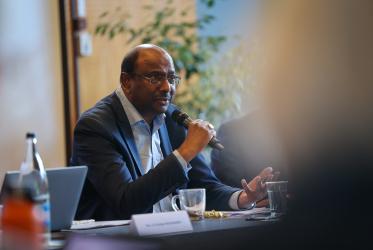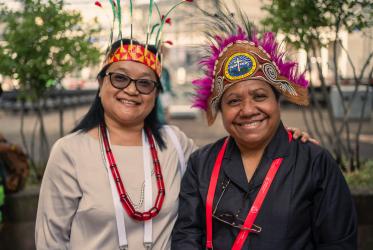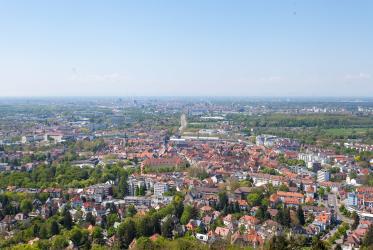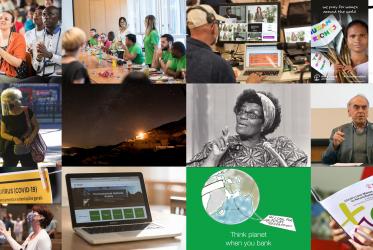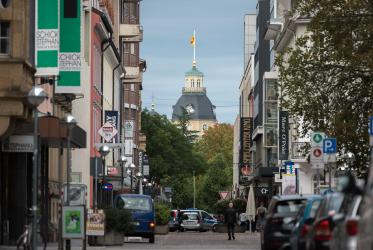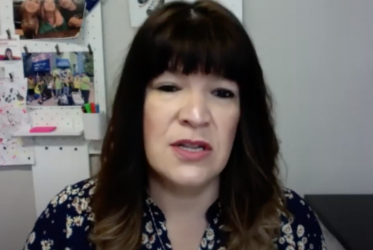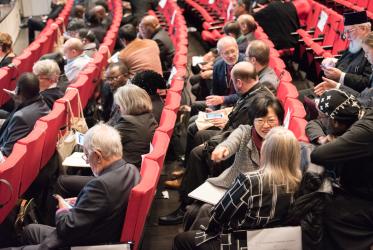Displaying 1 - 20 of 29
Thirty days that changed the ecumenical movement
23 October 2023
WCC executive committee lights the way for WCC 11th Assembly
26 November 2021
WCC Executive Committee envisions future for one ecumenical movement
08 November 2018
WCC Executive Committee convenes in Uppsala, Sweden
01 November 2018
Churches in France encourage ecological conversion
24 January 2018
WCC Executive Committee to convene in Amman
16 November 2017
In Zambia, foreign investors complicate “economy of life”
06 September 2017
